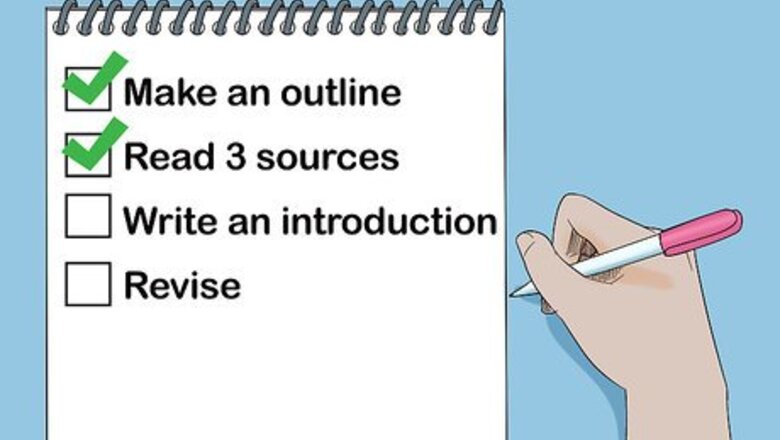
views
Focusing on a Task
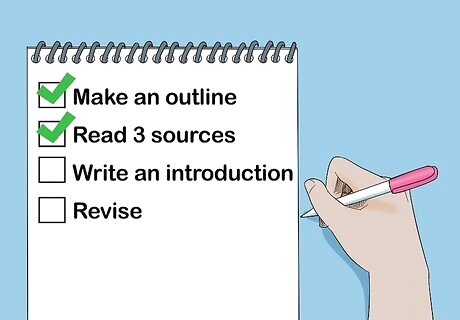
Write down a list of what you need to get done. Break down individual tasks into steps. As you complete each step, check it off. This gives you direction for your work, and you’ll get a small boost of motivation each time you cross something off the list. For example, if you need to write a paper, your task list might include making an outline, reading 3 sources, writing an introduction, or revising afterwards. Make sure to only focus on 1 task on a time. Multitasking will make you less productive in the long run.
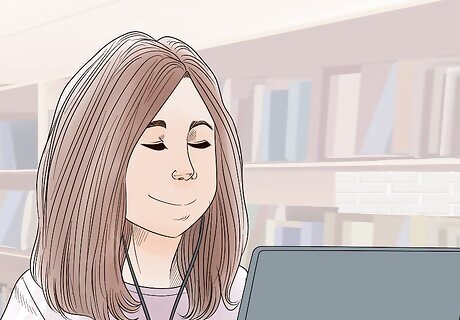
Minimize distractions. Voices, honking cars, loud music, or the television can make it hard to stay focused. Find a place where you can work without being bothered, disturbed, or interrupted. Some people do well somewhere with a little bit of ambient noise in the background, such as an office or a coffee shop. Others might need total silence. In this case, go to a library or work in a room alone at home. Work in a coffee shop or library. If you see other people around you focusing on their tasks, it can help you be more productive as well. If you’re somewhere where you cannot control your environment, try using earplugs or headphones to block out noise. Ask your coworkers to leave you alone until you can finish a task. Listen to classical music or nature sounds to increase your focus. If you find yourself distracted, get up and stretch or take a short walk to clear your mind.
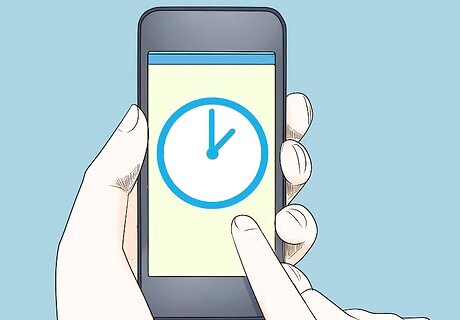
Impose a time limit. If you can, limit how much time you spend on a difficult, tedious, or boring task. Set a timer to encourage you to finish it before time is up. Once time is up, take a break or move onto a different task. For example, you might give yourself an hour to do research for an essay or respond to all of your emails within 30 minutes.
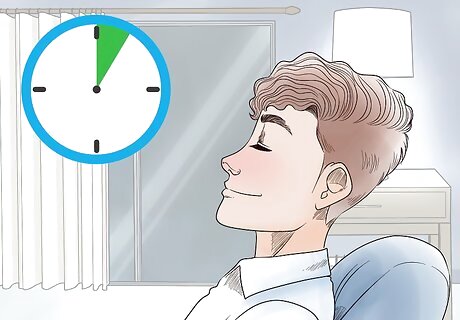
Take periodic breaks. Sometimes the best way to get yourself back into the groove is to take a break from your task. If you give yourself a little bit of time to space out and refocus, you'll find it easier to concentrate again. Consider taking a 5 minute break every hour or give yourself an hour off after working for several hours straight. Doing some stretches, watching a video, even just shutting your eyes for a few minutes, can all give you the needed break to get back to being attentive. If you're at school, ask to go to the bathroom. Go splash water on your face, or do some easy stretches.
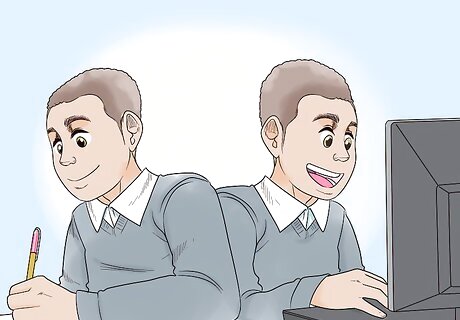
Mix up your routine. Try not to work on the same task for a long period of time. You may get tired and bored, which can cause your mind to wander. Instead, when you finish part of the task, switch to another activity for a while. This can be another task you have to complete or a relaxing activity that will help you unwind. If you're at work, spend a half hour or hour on a task, before moving on to something else. Come back to it after you've done a couple different tasks. Switch up the types of tasks. For example, go from reading, to writing, to calling someone, and back to reading. For example, you might work on your taxes for an hour, then take some time to make an important phone call or answer some emails. When you are done with that, you can return to your taxes.

Redirect yourself back to the task if you get distracted. As soon as you realize that you’re daydreaming or distracted, force yourself to return to the task at hand. If you need to, get up and stretch or jog in place for a few minutes to energize you and clear your mind. The more you do this, the easier it will become. Soon, you'll automatically divert from the less useful thoughts to the things you're trying to focus on.
Listening without Distraction
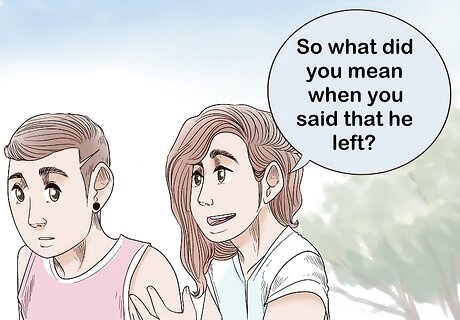
Ask for clarification if your mind drifts. If you're in the middle of a conversation and you realize you haven't been paying attention, ask the other person for clarification on the last point you remember. You can also ask them to restate what they just said. Say something like "So what did you mean when you said that he left?” or “Can you go back for a second? I think I missed something.” You can also summarize what the person has said to help you process what they are talking about. For example, you might say, “So it sounds like your boss isn't giving you enough credit" or "What I am hearing is that we need to finish this project soon."

Maintain eye contact with the speaker. When you maintain eye contact with someone, you're more likely to keep your mind focused on what they are saying. Even if you are listening to a speaker in a crowd, watching their face and eyes can help you be more attentive to what they are saying. Don't stare unblinkingly. You can occasionally look at your hands, or the table, but return your eyes and your attention to your conversation partner.
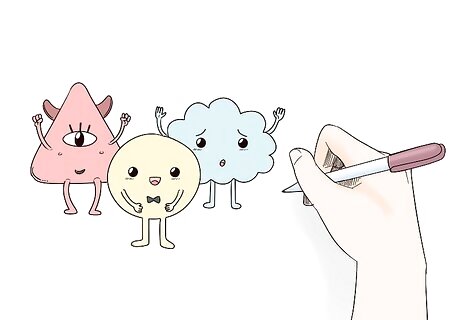
Fidget or doodle while you listen. Small, repetitive movements like fidgeting or doodling can actually help you listen more effectively. So grab something small like a paper clip or a bracelet or a rubber band and fidget with in in your hands. If you like to draw, sketch out shapes on a piece of paper. It's best to do this under the table so you don't distract other people. If you find your mind wandering, try wiggling your toes or jiggling your legs to get your mind back on track.
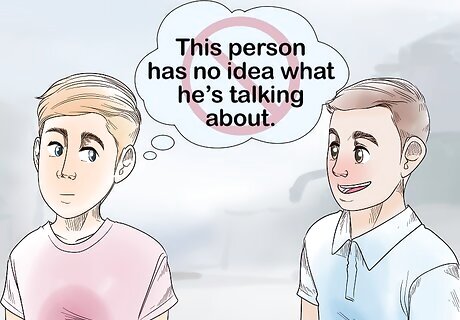
Avoid judging the speaker before they finish. When you’re hearing someone else talk, it can be easy to get lost in your own thoughts, opinions, or ideas. Keep an open mind to what they are saying, and try not to think about your own ideas until they are done. Try not to think of dismissive thoughts like “This person has no idea what they are talking about” or “They’re completely wrong.” These can make you stop listening, and you might miss crucial information. If you don’t consider everything they are saying, you might miss an important point that could help you understand their point better.
Building Long-Term Attentiveness
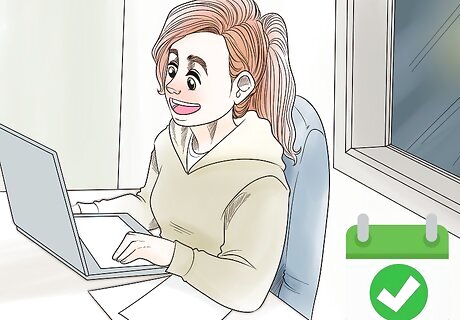
Find out when you work best. Some people work best at night. Others are better in the morning. Schedule your most difficult or longest tasks for the times of day when you know you can pay attention. If you're unsure when the best time of day is for you, try working at different times. Do some work in the morning, early afternoon, late afternoon, and evening. Decide which time you prefer. For example, if you work best in the early morning, set your alarm so you can get up and ready for a productive day! Plan your breaks for the times when you know you can’t focus. For example, if you get sleepy in the afternoon, take a break around 2 to take a walk or get a cup of coffee.

Learn to meditate. Meditation makes you more mindful and aware of the present moment, which can help expand your focus and improve your concentration. Close your eyes, draw in some long, deep breaths, and pay attention to your breathing. Start with just 5 minutes of meditation a day and work your way up to longer sessions. Meditation helps you stay aware within the moment. You can even do some meditation at your desk at work or at a university library, if you need a quiet moment. Learn to accept whatever task you need to get done. If you acknowledge what’s happening at the present moment, you can pay better attention.
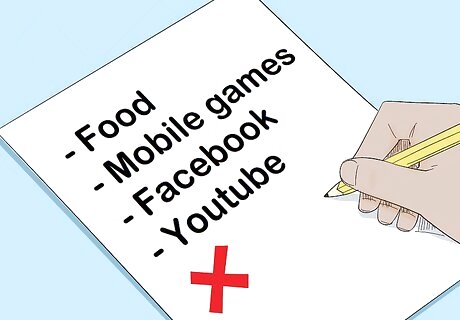
Identify your biggest distractions. Pay attention to when you get distracted, and try to learn the cause of it. Are you thinking about what you want to eat for dinner? Or are you thinking about the work you're trying to accomplish or the conversation you're having? Writing down the thoughts can be helpful in noticing when you're not paying attention. Keep a journal with you and note down the errant thoughts when you notice them. If you notice that you’re checking your phone often, try putting your phone in a drawer while you work. If you're having trouble paying attention at work because you're constantly checking your email, or going on Tumblr, you can download an app to help you monitor and avoid your distracting websites, such as the Self-Control App or Anti-Social.
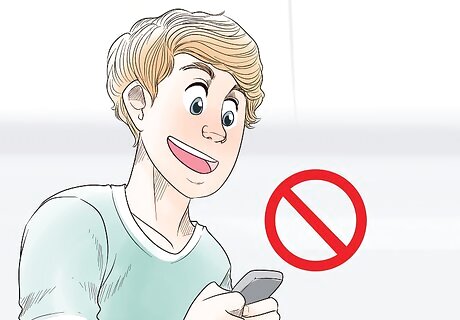
Stop distracting yourself when you are bored. Whether you waiting in line or killing time before a meeting, don't rely on your phone, computer, or tablet for a momentarily distraction. This teaches your brain to look for distractions instead of learning to wait patiently while you’re bored. Try to pay attention to things going on around you to increase your awareness. Watch people walking by, peruse the items on a shelf, or listen to a store’s ambient music.

Get 7-9 hours of sleep a night. Sleep helps you become more alert, focused, and productive. If you don't get enough sleep, you may find yourself yawning or daydreaming during work. Shut off electronics like your computer and your phone at least 30 minutes before you go to sleep. This can help you fall asleep faster. Go to bed and wake up at the same time everyday for the best results. This can help you get enough sleep and improve your quality of sleep.
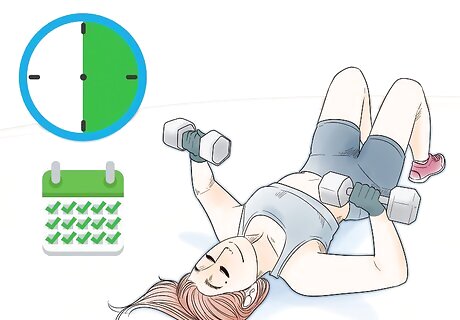
Exercise for at least 30 minutes a day. Exercise helps improve your mood and attention while reducing anxiety and stress. Just 30 minutes of exercise a day can let your brain focus and boost your productivity. Try activities like running, swimming, yoga, or just taking a walk. If you find that you're distracted or sleepy, step out for a brief walk or do some jumping jacks. Exercise will help you refocus.

Visit a doctor if your inattention interferes with your life. If you are unable to complete work, school assignments, or social activities because you can’t pay attention, it may be time to talk to a doctor. You may have a disorder, such as Attention Deficient Disorder. Your doctor can get you counseling and medication that can help you pay attention.














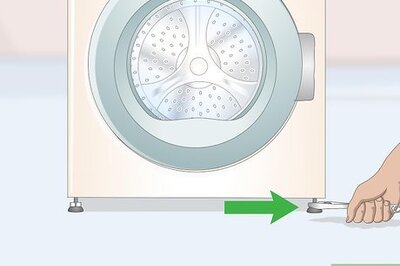



Comments
0 comment